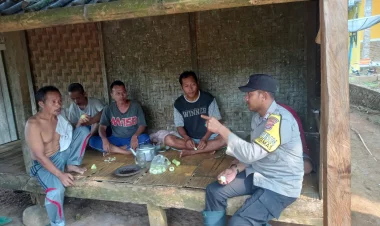Here’s What Happens on Africa’s First Long-Distance Luxury Cycling Safari
Only in Botswana can you venture 100 miles per day into the bush where no vehicle has gone before and sip wine in the evenings.
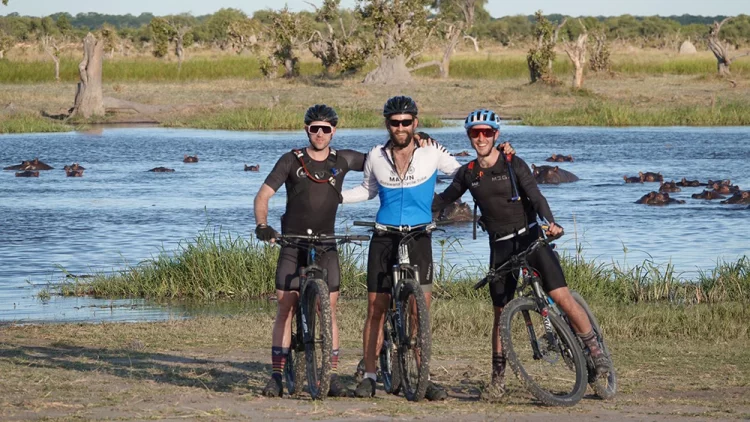
It’s time to dust off that Peloton, brush up on your African animals and start training for the trip of a lifetime. What you’re about to do hasn’t been done before. So, you may also want to talk to your travel insurance agent. Despite taking place in the bush where Africa’s big five still run wild and free, Botswana’s first multi-day cycling safari, offered by Natural Selection, marries back-to-back leg days with unbridled luxury. Hence the $9,080 per person price tag.
When Kyle MacIntyre, a Natural Selection safari guide, and his dad dreamed up this game-changing itinerary years ago, people didn’t think they were onto something; they thought they were on something.
More from Robb Report
“We wanted a way to be able to get people out into the bush on bikes,” says Kyle. “So, we started tracking and GPSing all the major elephant highways to ride.”
The word highway is generous. They’re more like single track trails. Still, they’re the paths of least resistance and the only way to access remote areas that prior to this safari, only animals were privy to.
“No vehicles or anyone else has gone ahead of you,” says Kyle. “Cycling these trails is a very natural and pure form of being in the bush.”
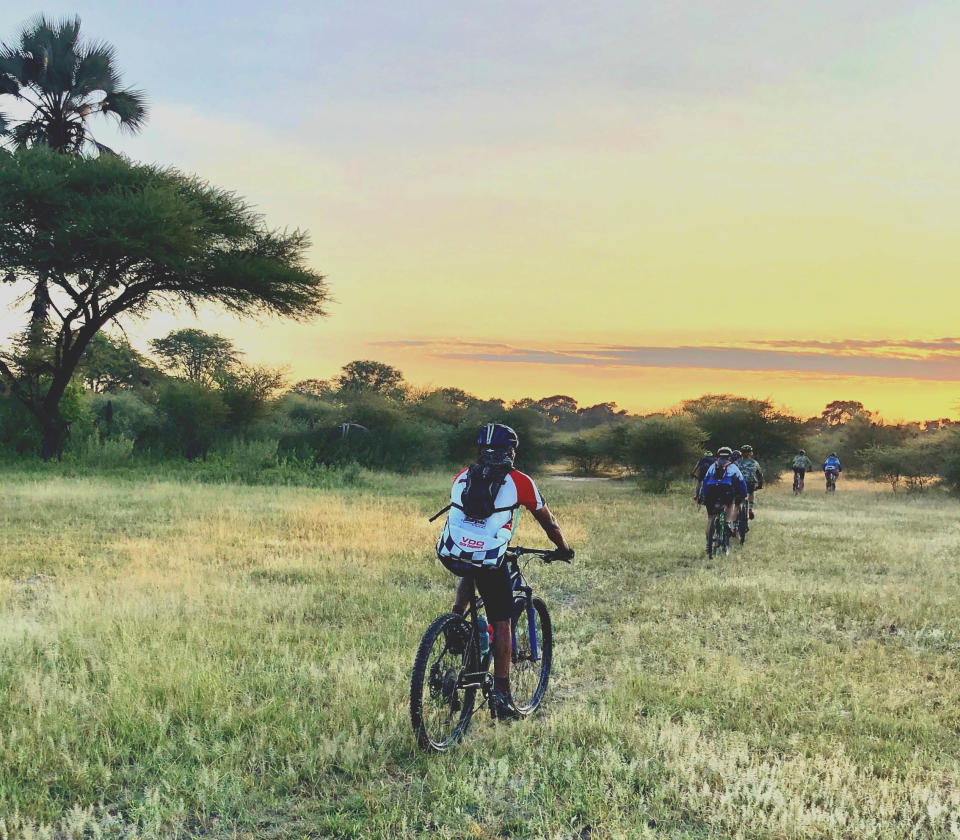
While several lodges in Botswana offer cycling as an activity, this is the first-time travelers can cover serious ground — 30 to 100 miles per day — and crash where their day’s ride finishes. For the first half of the seven-day itinerary, guests stay at mobile camps that move with them. Natural Selection is partnering with Elephant Trails, an outfitter specializing in private wilderness camping. Their crew of Botswana natives set up and tear down camp each day, so guests can concentrate on the three r’s: riding, recovery and relaxation. While the mobile camping tents are closer to roughing it than the Ritz-Carlton, guests are treated to private tents with en-suites, hot bucket showers, warm duvets and the finest in camp cuisine served alongside South African wines.
The only rule in camp is no sleeping in. But it’s not Kyle’s fault. Blame Botswana’s blazing hot sun and the animals who prefer to be active early in the morning. After a made-to-order hot breakfast, guests climb on mountain bikes prepared by the camp mechanic. There’s also an e-bike option at an additional cost. Natural Selection spent more than $100,000 on importing e-bikes (which they had to fly in on a chartered flight since airlines view e-bike lithium batteries as potential bombs). Then it’s time to hit the elephant trails. Kyle, a John Hamm-look-alike who has a rifle strapped to his bike, always leads the pack.
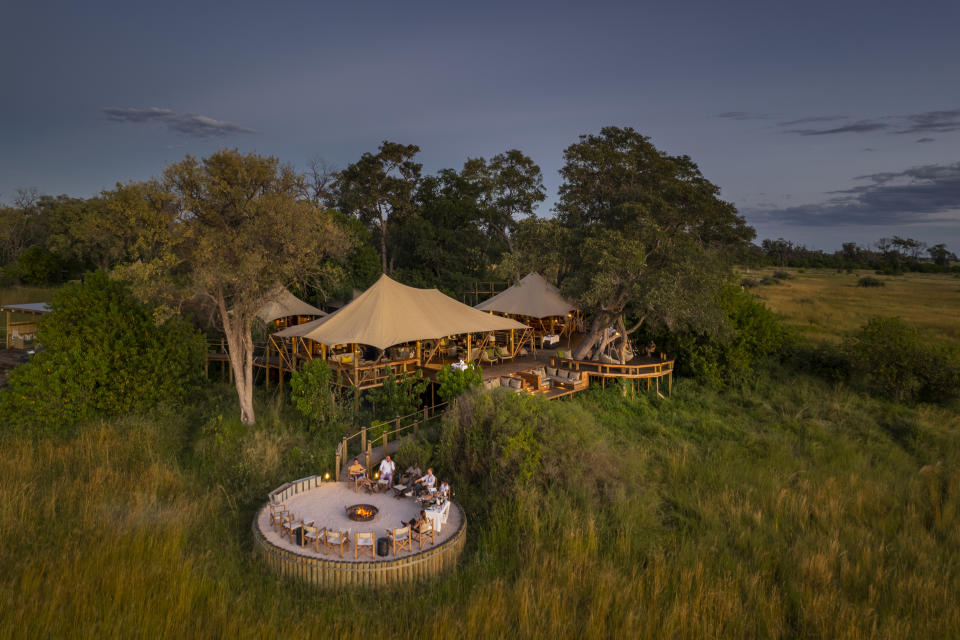
On a typical ride guests can encounter elephants, hippos, zebras, giraffes, baboons, hyenas, wild dogs, wildebeest, warthogs and water buffalo — the most dangerous animal in the bush. In fact, every year they kill so many humans they’ve earned the moniker the “Black Death.” As far as the king of the jungle, Kyle says this: “Seeing big cats on our ride isn’t a goal, obviously. But we usually run into tracks.”
While Africa’s wildlife is used to the sound of 4x4s and won’t run away from them, they’re a bit more timid around two wheels. Still, it’s perhaps the best way to experience the bush.
“You get to cover more ground, and do it all without the background noise of the engine,” says Kyle. Of course, that Landcruiser is also a lifeline. “On bikes, you don’t have the comfort of a vehicle and you can’t rely on the engine to alert animals of your coming. But your senses are enhanced so that helps.”
On this cycling safari, teamwork doesn’t just make the dream work, it keeps you alive. “You have to rely on each other to keep your eyes and ears open,” Kyle adds. “You can’t just switch off and sit back.”
Doing that is the difference between colliding with a 14,000-pound. bull elephant head-on and getting an epic photo of it (from a safe distance) for the ‘gram.
Don’t feel like pedaling all the way to the next camp? No problem. Guests who want a lift can hop in a helicopter, for an additional fee. Natural Selection is the proud owner of exclusive permits that allow their chartered chopper to carry passengers. A custom-made bike rack, that Kyle insists doesn’t affect the helicopter’s balance, is attached to the landing skids.
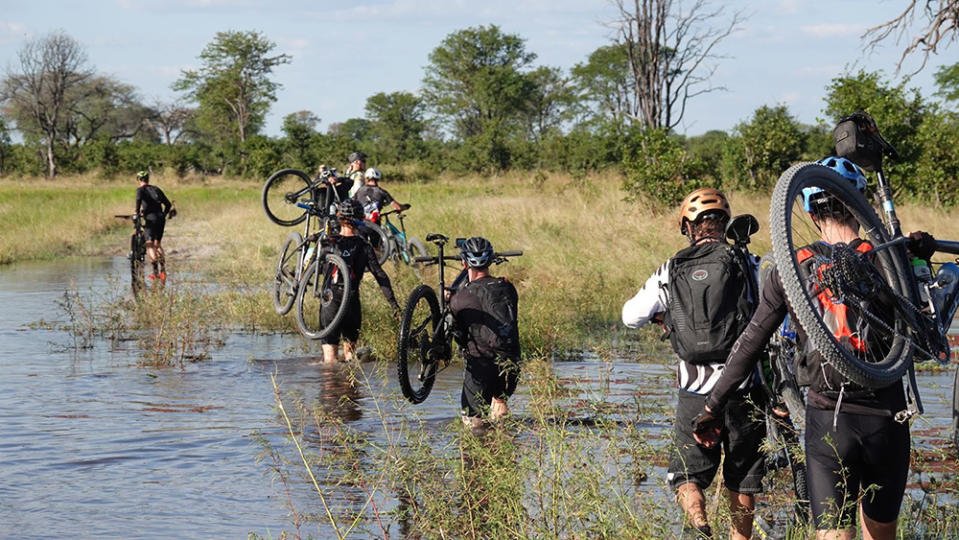
After four nights at mobile camps, guests are treated to two nights at Tuludi, Natural Selection’s five-star lodge located in the Khwai Private Reserve. All seven of their 645-square-foot treehouse-style safari tents boast creature comforts like WiFi, AC, a king-size bed, mini fridge, outdoor claw-footed tub and a sprawling veranda featuring a plunge pool with views worthy of a National Geographic photographer. Common areas include a swimming pool, curio shop and library enveloped in the canopy of a rain tree. After selecting a book, ride the slide – seriously, there’s a slide – to the dining area where Chef Aaron serves up dishes like beef carpaccio and homemade gnocchi. If you can’t find the gin you’re looking for at the adjacent bar, we have bad news: it doesn’t exist.
Whether it’s dessert, drinks or both, don’t feel bad about indulging. “You’re definitely overfed at the camps,” says Kyle. “But you burn so many calories cycling so it all evens out.”
Best of Robb Report
Sign up for Robb Report's Newsletter. For the latest news, follow us on Facebook, Twitter, and Instagram.
Click here to read the full article.

 oujisama
oujisama 









